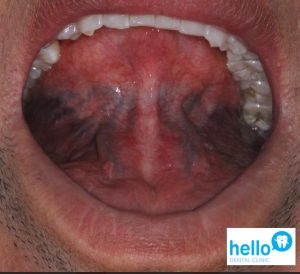
Normal tongue
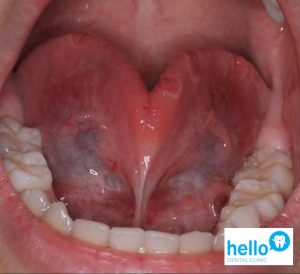
Tongue tie
TONGUE is a vital organ responsible for:
TONGUE TIE is a condition characterized by a short, tight band of tissue (lingual frenulum) that tethers the bottom of the tongue’s tip to the floor of the mouth, restricting its range of motion.
This article aims to explore the anatomical distinctions, symptoms, and implications of tongue tie, as well as the available treatment options. By shedding light on this condition, we hope to provide valuable insights for parents, caregivers, and healthcare professionals in effectively managing and addressing tongue ties.
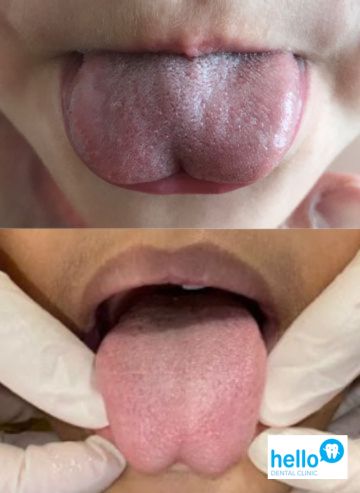
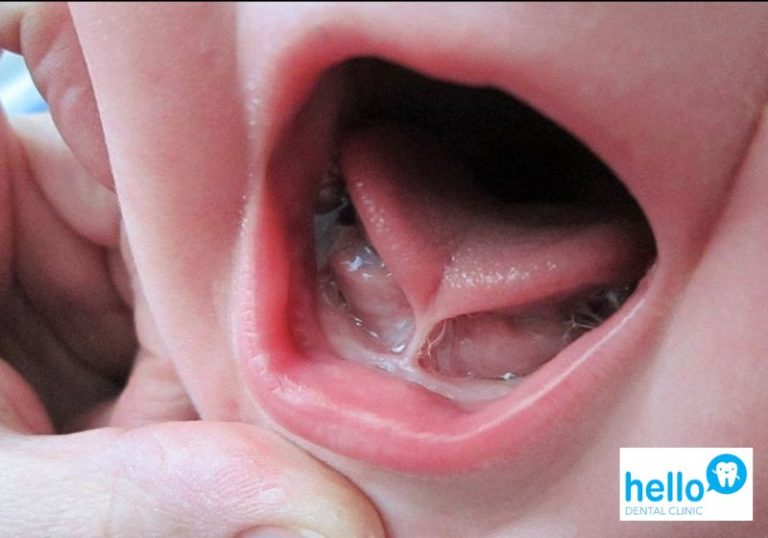
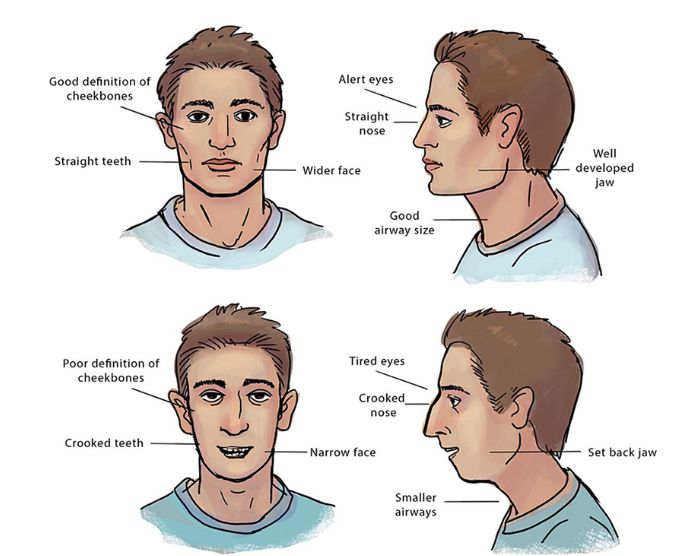
A restricted tongue cause limited range of movement of the tongue, resulting the tongue unable to park fully on the roof of our mouth to stimulate growth in growing children.
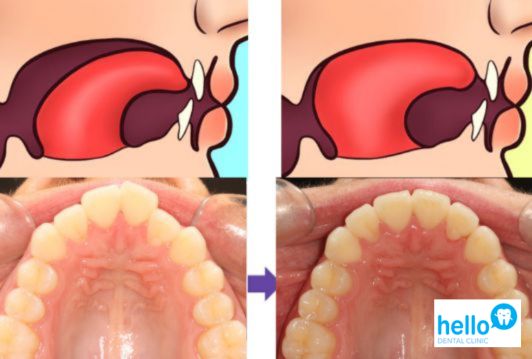
Hence, resulting in narrow dental arch and subsequently presented as crowding:
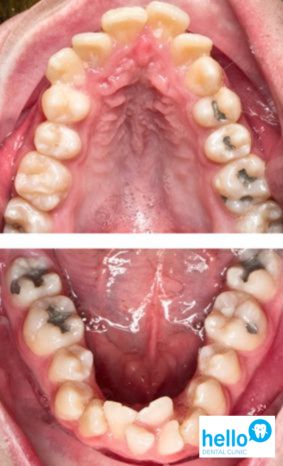
A narrow arch would affect our neighbouring structure like the nose, because THE ROOF OF OUR MOUTH is equivalent to THE FLOOR OF OUR NOSE.
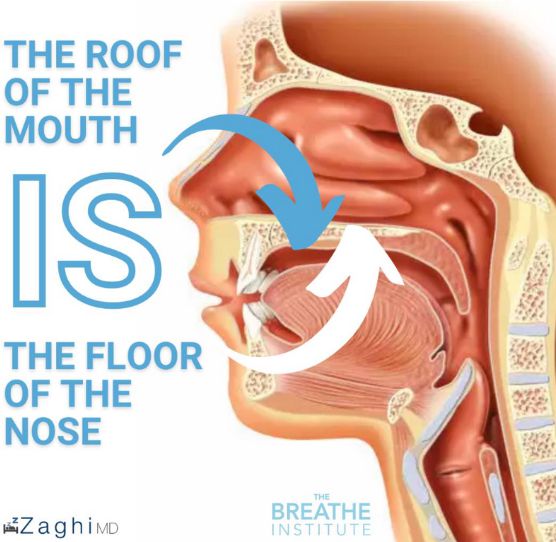
Hence, if you notice your child’s dental arch is narrow and frequently experience nose congestion, the diagram below represents the dental structure:
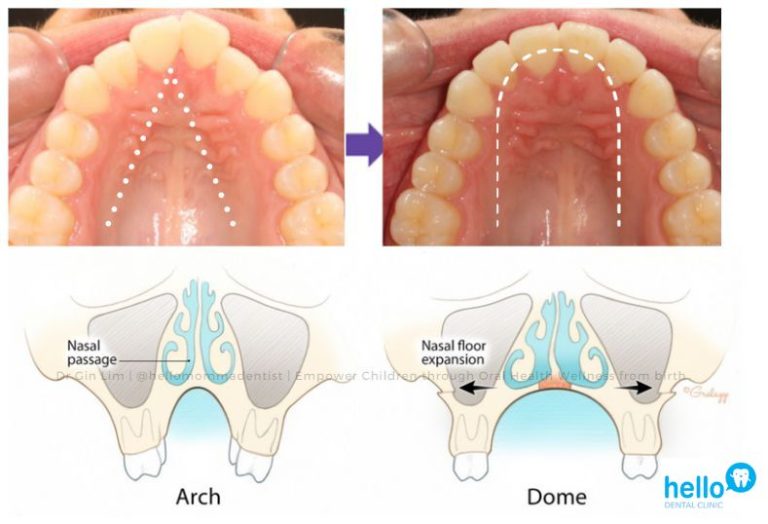
Tongue tie, or ankyloglossia, is a condition that can significantly impact oral functions such as feeding, speech, and oral hygiene. Understanding the differences between a normal tongue and a tongue tie is crucial for early recognition and intervention.
Tongue tie is characterised by a restricted lingual frenulum, which can lead to difficulties in breastfeeding, speech articulation, and maintaining oral hygiene. Common signs include difficulty latching during breastfeeding, speech delays, and poor oral hygiene, affecting nutrition, communication, and dental health.
Early diagnosis of tongue tie through clinical examination and functional assessment is essential. Depending on the severity of the condition, tongue tie treatment options range from oral myofunctional therapy and early interceptive orthodontics to laser surgery. Recognizing the indicators for consulting a healthcare provider, such as feeding difficulties and speech delays, is important for timely intervention.
Early diagnosis and treatment of tongue tie are vital for enhancing oral health, speech, and feeding. By addressing this condition promptly, individuals can avoid long-term complications and improve their quality of life. If you suspect tongue ties in yourself or your child, seeking professional advice and intervention can make a significant difference in managing and overcoming the challenges associated with this condition.
(1259932-U)
475, Jalan Sultan Azlan Shah,
Taman Million,
51200 Kuala Lumpur
Mon-Fri: 09:00-19:00
Sat-Sun: 09:00-17:00
V06-02-05, Signature Retail Lot,
Sunway Velocity,
Lingkaran SV, Jalan Shelley,
55100 Cheras KL
Mon-Fri: 09:30-21:00
Sat-Sun: 09:00-18:00
2-02, Level 2, Wisma Conlay,
No.1, Jalan USJ 10/1,
Taipan Business Centre,
47620 Subang Jaya, Selangor
Mon, Tue, Fri: 10:00-18:30
Wed, Thu: 10:00-21:00
Sat, Sun: 09:00-15:30
G-8, Idaman Robertson,
No. 2, Jalan Robertson,
50150, Kuala Lumpur.
Mon, Thur: 11:00-20:00
Tue, Wed, Fri: 09:30-21:00
Sat, Sun: 10:00-19:00
No. 2-2 (Second Floor),
Jalan Solaris 5,
Solaris Mont Kiara,
50480 Kuala Lumpur
Mon-Fri: 10:00-19:00
Sat-Sun: 10:00-18:00
Copyright © 2024 Hello Dental Clinic. All Right Reserved.